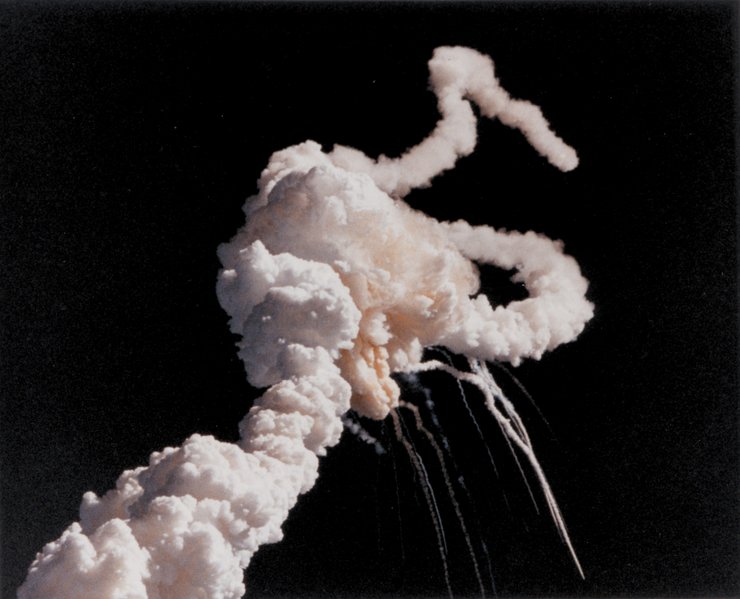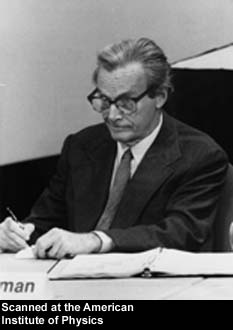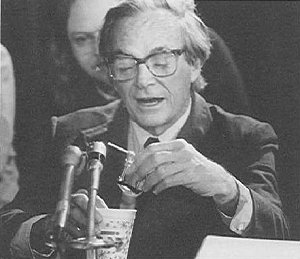The Challenger
Challenger explosion: http://en.wikipedia.org/wiki/Feynman
- Feynman was asked to be on the Rogers Commission for the Challenger disaster in 1986. The disaster was a nationally televised tragedy, and a matter of serious concern for the American people as well as NASA. As it turns out, Feynman was the perfect individual to be selected for the committee. He was blunt, inquisitive, and unafraid of what other people would say. And what Feynman discovered was startling.
- Feynman discovered that the managers and the engineers of the program had massive communication troubles. The engineers were voicing concerns that simply never got heard by the people that needed to hear them. Also, the managers demonstrated a considerable misunderstanding of the safety ratings of the materials being used. For instance, in the O-ring, the part ultimately responsible for the explosion on January 28th, stress tests showed the rings cracked a third of the way through. This was recorded as a safety factor of 3, based on the crack one third of the way through. However, as Feynman explained, for a safety factor of three to be an accurate calculation, the O-ring should be able to withstand three times the stress normally induced on the ring before breaking. In the circumstances preceding the explosion, the O-rings would actually have a safety factor of 0. This would lead to radically different odds of the safety of the shuttle than those propagated by the NASA management.
Feynman on the Rogers Commission: http://ysfine.com/feynman/fphoto.html
Arrow indicates place of O-ring failure: http://www.feynman.com/
- Feynman kept digging and after speaking to an un-named engineer, came across what he believed to be the culprit in the Challenger tragedy. The O-ring that sealed the gap between the solid rocket boosters and the rest of the shuttle was not able to expand sufficiently in cold weather to seal the gap. Thus, hot fuel could leak into the rest of the engine and cause an explosion.
- Feynman was called to testify before Congress on his findings. In a truly theatrical gesture, Feynman set up a demonstration of an O-ring in a vice submerged in ice water while questioning a NASA manager who kept affirming the reliability of the O-ring seal. The vice/ice water setup was realistically what the O-ring would have been subjected to the morning of the launch. When Feynman pulled the ring out of the water it was completely crushed; obviously unsuitable for sealing any gap.
Challenger experiment: http://www.feynman.com/
- Feynman felt that the commission displayed the serious need for reevaluation within the NASA program. To his dismay, his fellow commissioners disagreed. With his voice the only dissenting vote, the commission decided that the event should be internally dealt with and published Feynman's opinion as an appendix.




